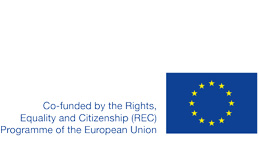25th avgust 2020
Online Violence: Useful Resources for Parents During the Pandemic
Children are at increased risk of experiencing online violence according to UNICEF
“Under the shadow of COVID-19, the lives of millions of children have temporarily shrunk to just their homes and their screens. We must help them navigate this new reality,” said UNICEF Executive Director Henrietta Fore. UNICEF has released a press rekease and technical note aimed at urging governments, ICT industries, educators and parents to be alert, take urgent measures to mitigate potential risks, and ensure children’s online experiences are safe and positive during COVID-19. Read the press release and download the technical note here.
COVID-19 Parenting: Keeping Children Safe Online
COVID-19 has abruptly pushed children’s daily lives online. Many are introduced to remote learning and through social media and online games they stay connected with friends and family during isolation. Increased online activity also puts children at heightened risk of online violence, including online sexual harassment, exploitation, bullying and being confronted with harmful content. As a parent, it is – now more than ever – important to be aware of these risks and to invest in a trusting, open conversation with your child about their online behaviour and experiences. By following this link you will find a useful graphic which illustrates how parents can keep their children safe online.
New Campaign by End Violence Against Children: Stay Safe At Home. Stay Safe Online.
COVID-19 and related isolation measures have led to children spending more time socialising, learning and playing online. End Violence Against Children has teamed up with their partners in the technology industry, including Microsoft, Facebook, Google, Twitter, Roblox and Snapchat, to develop a new campaign to help keep children safe in this rapidly changing environment. Five practical steps and resources to help you do just that, including: talk with children about online risks, stay involved in their digital world, know who they’re connecting with online, use privacy and security settings, and block and report people who make them feel uncomfortable.


